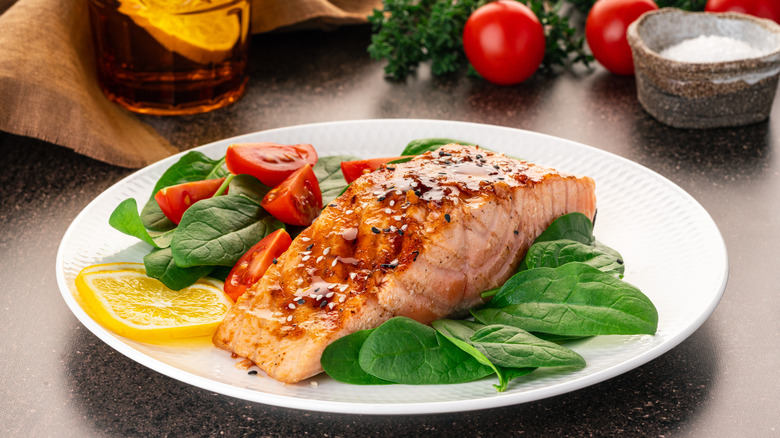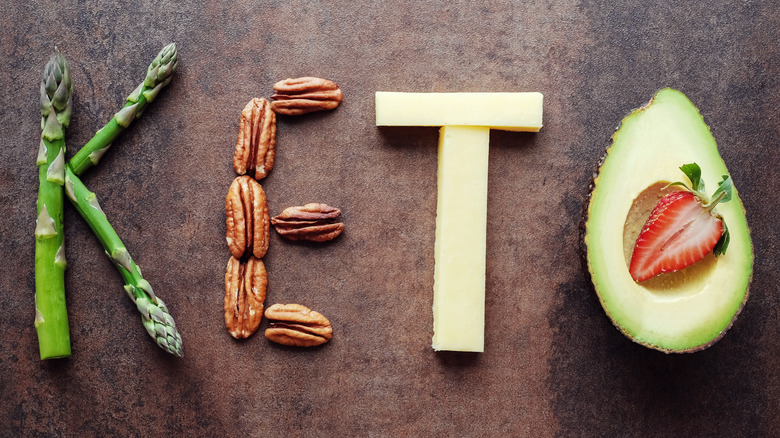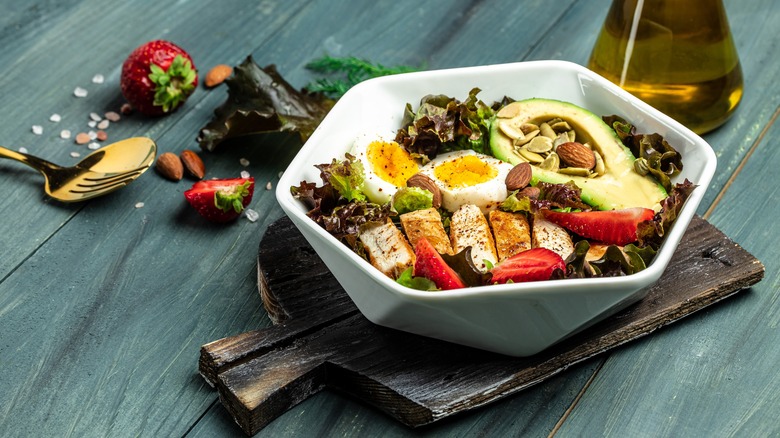What's The Difference Between Clean Keto And Dirty Keto?
The ketogenic diet is an eating pattern that consists of high fat, moderate protein, and low carbohydrate meals, as described by Healthline. There's no denying the traction that the keto diet has gained over the years. Statistics from the International Food Information Council published in 2021 show that about 5% of American adults followed the ketogenic diet in 2021.
A 2019 study published in Frontiers in Neuroscience notes that keto diets originally came into existence in the medical world as a therapeutic alternative for pediatric epilepsy. However, recent applications of the term relate more to weight loss than epileptic conditions and seizures.
Today, the keto diet has evolved to reflect multiple variations, including "clean" and "dirty" keto. In the face of these variants, it can be hard to determine if the keto diet is right for you. What is the difference between clean keto and dirty keto? Here, we'll provide further details.
Clean keto vs. dirty keto
The macronutrients of a keto diet typically consist of up to 60% fat, up to 35% protein, and up to 10% carbohydrates, according to StatPearls. The Harvard T.H. Chan School of Public Health notes that in some versions of the keto diet, the fat percentage can be as high as 80%. The aim is to force the body to use fat as its primary energy source, triggering a biochemical process known as ketosis.
The difference between clean and dirty keto is straightforward, as the names suggest. Clean keto focuses on whole and natural foods, while dirty keto includes processed foods, as the focus is more on the macronutrient ratio (per U.S. News and World Report).
According to WebMD, processed foods with more additives can increase susceptibility to heart diseases, obesity, and certain cancers. Generally, it's safe to say that the main difference between clean and dirty keto is food quality, which gives the former a significant edge over the latter.
Clean vs. dirty keto foods to look out for
There are as many clean keto options as there are dirty ones. For clean keto proteins, WebMD advises consuming eggs, seeds, nuts, and Greek yogurt. Complement your clean keto diet with low-carb vegetables like broccoli, mushrooms, peppers, and cauliflower.
If you are on a dirty keto diet, some foods you may consume include those with artificial sweeteners, processed oils, processed proteins, cheese chips, and chocolate. Certain people choose to eat these foods regularly, while others only consume them on "cheat days" (per U.S. World and News Report).
Generally speaking, the goal of going keto is to get fewer calories from carbohydrates and more from proteins and fats, according to WebMD. However, keto diets may not necessarily result in the weight loss or health benefits you seek. To learn more about the keto diet and address your specific health concerns, contact your doctor for more information.



